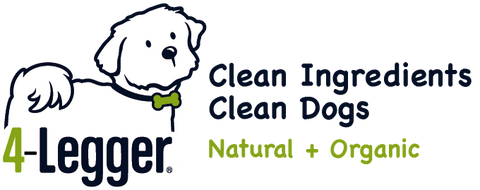How Medicated Dog Shampoo Works (and When It’s Too Harsh)
More Than Just Medicine
Medicated dog shampoos sound like a miracle fix for every itch, flake, and odor.
They're marketed as powerful treatments - but few pet parents realize these shampoos often contain a cocktail of harsh chemicals. Yes, the active drugs fight bacteria, yeast, or parasites - but the "other ingredients" in the bottle can be just as damaging to your dog's skin as the problem you are trying to solve.
Let's break down how medicated shampoos actually work and why they're often too harsh for everyday use.
How Medicated Dog Shampoos Work
Medicated shampoos use active drugs to target specific conditions:
-
Antifungal Shampoos - ingredients like ketoconazole, miconazole, or climbazole kill yeast and fungi. Used for ringworm or yeast dermatitis.
-
Antibacterial Shampoos - chlorhexidine or benzoyl peroxide reduce bacterial load. Used for bacterial infections like staph or pyoderma.
-
Keratolytic Shampoos - sulfur, salicylic acid, coal tar strip away oils, scales, and buildup. Used for seborrhea (flaky, oily skin).
-
Antiparasitic Shampoos - lime sulfur, pyrethrins, permethrin target mites, fleas, or other parasites.
👉 These shampoos are not gentle cleansers. They are drug treatments designed for specific skin diseases and chronic conditions, not for allergies or routine itching.
Why Medicated Shampoos Are Too Harsh for Most Dogs
The truth is, most itchy dogs don't have infections. Their problems often stem from allergies, yeast imbalance, or sensitive skin. In those cases, medicated shampoos can actually make things worse:
-
Strip natural oils → leaving skin dry, itchy, and vulnerable.
-
Disrupt the skin microbiome → killing both good and bad microbes.
-
Expose dogs to toxins → coal tar, lime sulfur, and antifungals can absorb into the body.
-
Cause rebound yeast → harsh stripping creates the perfect environment for yeast to come back even stronger.
The "Other Ingredients" Nobody Talks About
It's not just the drugs you need to worry about. Most medicated shampoos are loaded with harsh detergents, preservatives, and artificial additives that make the shampoo lather, smell, or look pretty, all at your dog's expense.
Here are some common "inactive" ingredients and their risks:
-
Sodium C14-16 Olefin Sulfonate - industrial-strength detergent; strips oils, causes dryness and irritation.
-
Cocamidopropyl Betaine - marketed as coconut-derived, but linked to allergic reactions and skin irritation.
-
Octoxynol-10 - surfactant tied to hormone disruption in lab studies.
-
Ammonium Lauryl Sulfate - harsh foaming agent that damages the skin barrier.
-
Polyquaternium-7 - plastic-like coating; potential irritant and buildup. Has moderate links to organ toxicity
-
Phenoxyethanol - preservative linked to allergic reactions and nervous system effects in high doses.
-
Methylchloroisothiazolinone (MCI) & Methylisothiazolinone (MI) - preservatives with a high risk of causing skin allergies; banned in leave-on cosmetics in the EU.
-
Hydrochloric Acid - corrosive if misused; harsh on sensitive skin.
-
Synthetic Fragrance (e.g., Cucumber Melon) - undisclosed chemical mixtures, common allergens, hormone disruptors.
-
FD&C Red 40 (Artificial Dye) - petroleum-based colorant linked to allergic reactions and hyperactivity in sensitive individuals.
👉 Put together, this is much less a skin treatment and much more a toxic chemical cocktail
You can use the pet shampoo ingredient database to research ingredients.
Holistic Alternatives That Work With the Skin (Not Against It)
Instead of harsh chemicals, holistic shampoos use natural ingredients that support the skin barrier and calm irritation:
-
🌿 COOLING Tea Tree & Peppermint - natural antifungal and antibacterial support, peppermint cools irritated skin and helps rebalance sebum.
-
🍋 Lemongrass & Aloe - gentle cleanser + natural deodorizer.
-
🌾 Hemp & Lemongrass - rich in omegas to repair and moisturize skin and reduce inflammation.
-
🍃 Unscented Hypoallergenic with Aloe - fragrance-free relief for ultra-sensitive dogs.
- 🍊 Revitalize Neem Shampoo with Orange Essential Oil - helps to repair damaged skin and is an excellent collagen support.
All certified to USDA Organic standards. No sulfates. No parabens. No artificial fragrance. No dyes.
Quick Reference: Medicated vs. Holistic
| Type | How It Works | Hidden Risks |
|---|---|---|
| Antifungal (ketoconazole, miconazole) | Kills yeast/fungi | Absorbed systemically; may stress liver; irritates skin |
| Antibacterial (chlorhexidine, benzoyl peroxide) | Reduces bacteria | Strips oils, dries skin, disrupts microbiome |
| Keratolytic (sulfur, salicylic acid, coal tar) | Removes oil/scales | Over-dries; coal tar = possible carcinogen |
| Antiparasitic (lime sulfur, permethrin, pyrethrins) | Kills mites/fleas | Toxic, strong odor, unsafe for cats |
| "Inactive" Additives (sulfates, fragrance, parabens, dyes) | Make it foam/smell/look nice | Allergens, hormone disruptors, skin irritants |
Final Thoughts: Know What's Really in the Bottle
Medicated shampoos aren't just "stronger shampoos." They're drug-based formulas packed with toxic additives. While they do have a place for treating truly bad infections and chronic skin conditions, they're far too harsh for the everyday itching, allergies, and yeast issues most dogs face.
For long-term relief, your dog needs holistic care:
-
Gentle, organic shampoos that protect the skin barrier.
-
A low-carb diet to starve yeast.
-
Support for immune health and gut balance.
That's how you break the itch-scratch cycle without bathing your dog in harsh chemicals.
Stay tuned for next week's article:
👉 Next in our series: "Medicated Dog Shampoo for Yeast Infections: What Pet Parents Should Know."





